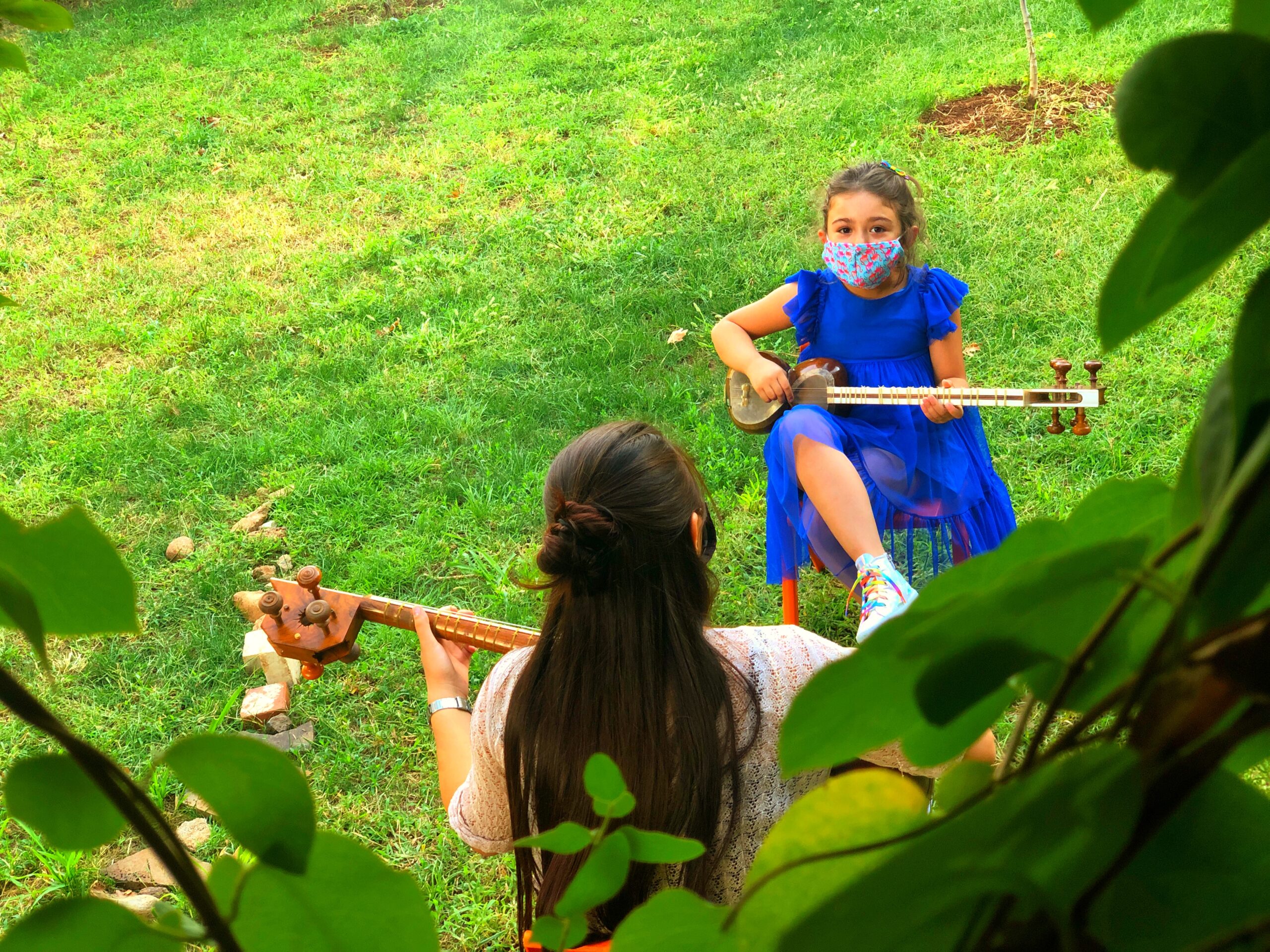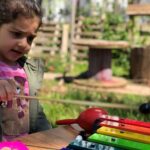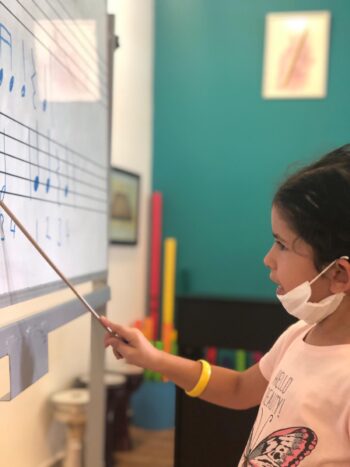MUSIC CLASSES WITH PARENTS’ PARTICIPATION BY ZAROK MA
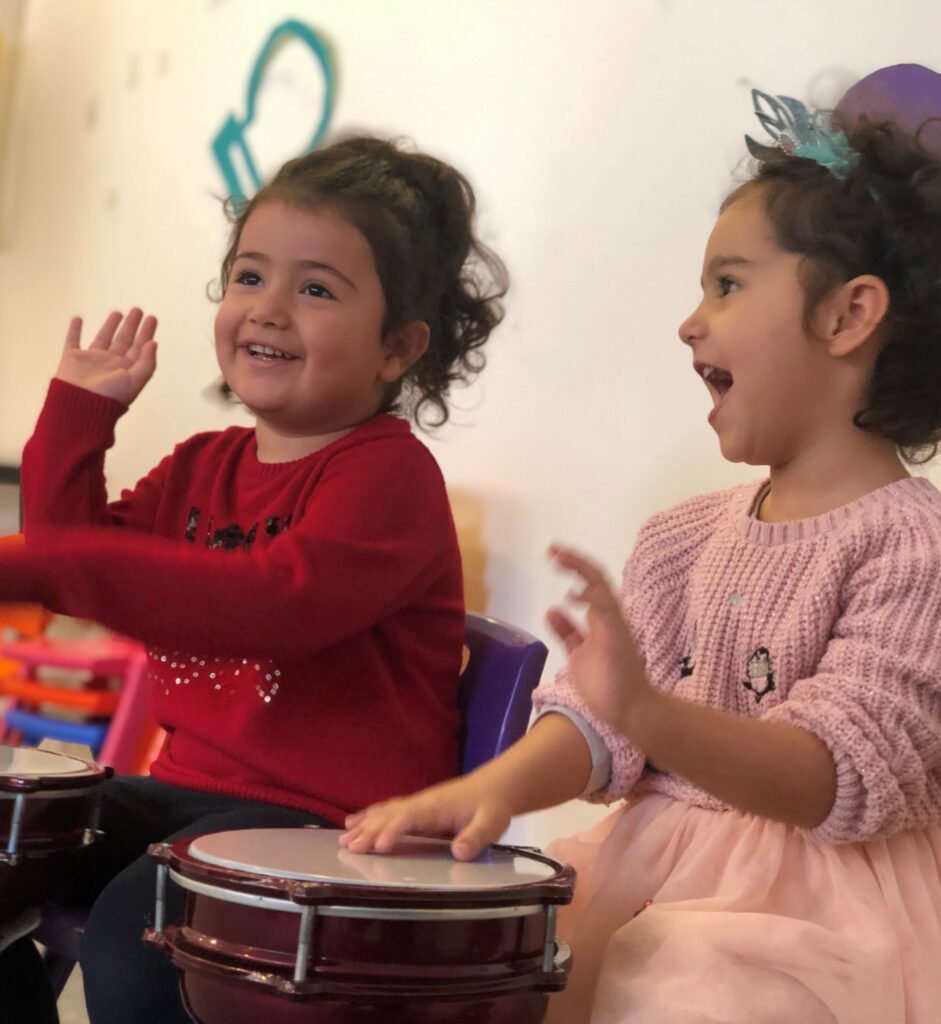
Starting from 16 th week of a baby’s birth, Music classes based on Rhythm, Action, Sound and game with parents’ participation, is carried out for an hour once a week. The classes are done at the same time every week in six kids group who are at the same age with one or both parents ‘participation (it is optional mother, father, brother, sister, babysitter, grandma, grandpa, uncle, aunt, etc.)
The person who will join the lessons regularly with the child should be the one spending time together with the child so that the kid can see and feel the music is an indispensable part of life not a lesson.
On the other hand that the parent has a very important role in child’s musical improvement, we can list such as;
It is the first step that the child feels safe in class atmosphere.
The number of kids ‘participation in one hour lesson is equal
The parent can observe the improvement of the process of the class.
The parent can do the activity with the kid at home for five or seven minutes by taking the kid’s focus and desire for granted. Even if the child does not want to do the activity, the parent should do him/herself by explaining that it is also his/her responsibility. The child should not be forced.
The songs sent to the What’s up groups that are created for every kids group are listened twice a day once in the morning, once in the evening and sung together with the child. If it is repeated every day, it will be seen that the child will have learnt the song indirectly. That’s why the child shouldn’t be forced.
The parents’ role in participating the classes with or without periodic is grouped in two.
If the child’s age is between 0-2 It is essential that parents should join in the lessons permanently
For ages 3,12 week participation is essential. This period can be shorter or longer for the exceptional situations.
For ages 4-5 the parents can’t join the lessons after six weeks.
As the Windows of the classes are made up of glass, parents have the chance to Show that “I am here and calm down”. but we prefer this in crisis time.
Parents’ joining the councils that are carried out every month is very important for both the kid and us.
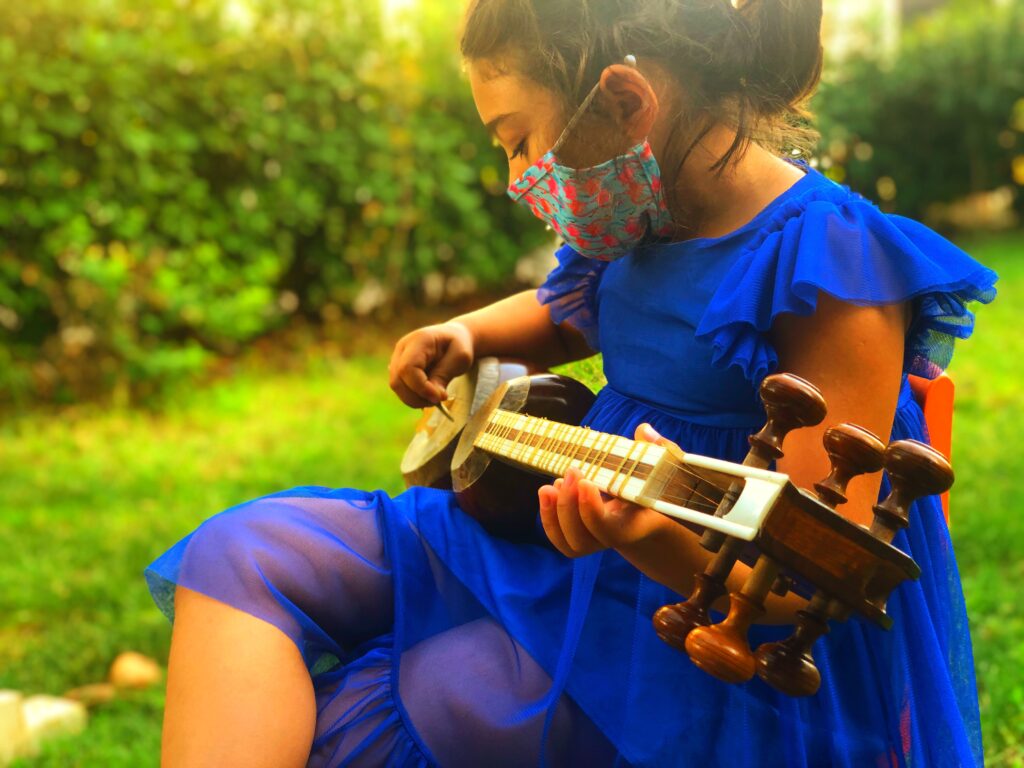
LESSON CONTENT
Using body as a musical instrument with body percussion.
Reading the rhythm molds by the drum and rhythm sticks, playing and improving its sense of rhythm by accompanying to a melody.
Repeating tone and melody by xylophone, the piano and tembur to improve sense of hearing the music
Doing the major scale without referring to any instrument
Teaching the note with colorful papers
Teaching a song which is a traditional or made in a musical mother tongue composed for children.
Teaching the songs that includes actions, games and folk dances.
Learning the notes, beast, and dynamic time by means of games and practice.
Reading the note and playing the note by xylophone when he/she sees a note
Knowing the Deng Beji and Stranbeji with their voice and life stories for cultural transfer and continuity.
During the period ,having the opportunity to know all the instruments and watch live performances
After the Zarok ma process is completed
A child can choose a musical instrument and continue his/her musical education in the ma music if he/she gets the level of readiness to play a musical instrument and if she/he is willing to.
If a child who starts at the age of five and in the end of the process is at school age, if her/his level is enough, s/he can have the right to join in ma music Academy without exam
